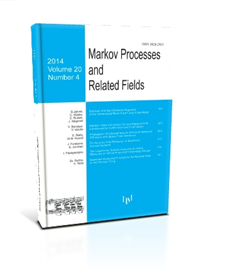Quasi 1D Localization: Deterministic and Random Potentials,
W. Kirsch, S.A. Molchanov, L. Pastur, B. Vainberg
2003, v.9, Issue 4, 687-708
ABSTRACT
The paper contains an exposition of several general results on the absence of the absolutely continuous spectrum and on the localization (p.p. spectrum) for the discrete Schrodinger operator $H$ on the half strip $Z_+^1\times Z_{n}$ with deterministic and random potentials. The main assumption which leads to the singularity of the spectrum or the localization is the existence of ``bad conducting blocks''. This assumption is formulated in terms of the resolvent and then directly in terms of the potential, and it captures different mechanisms which suppress the transport (existence of high or not very high long barriers, the case when the potential contains arbitrary long disordered (random) inclusions, or has a polycrystal structure, and etc.). Proofs are based on the cluster expansion of the resolvent $(H-\lambda I)^{-1}$ with respect to the system of bad conducting blocks. In particular, for a wide class of the random potentials, it is proven that the spectrum is p.p. with probability one without assumptions on independence or homogeneity.
Keywords: random Schrodinger operator,localization
COMMENTS
Please log in or register to leave a comment

